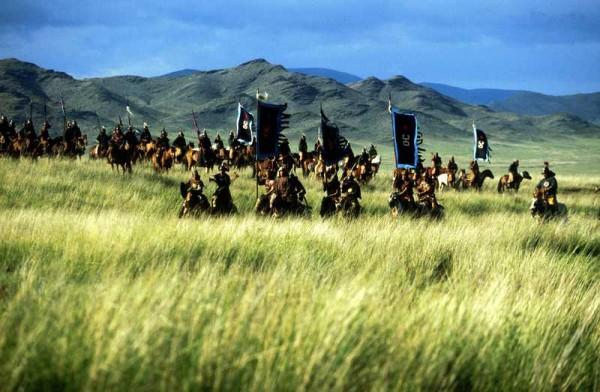
Mongol Empire
Genghis Khan started a determining war against Jurchen Dynasty of North China. His son Juchi conquered most part of Siberian territories, which secured the Northern borders of the country. The success of this war marked a turning point for Mongolians. Moreover, Genghis Khan settled a huge military campaign on the Eastern flank Mongolians defeated the Kara-Kidans, then get closer to Khwarezm, the present Uzbekistan and Afghanistan. The war against Khwazerm began in 1218. The Mongolian army crossed the Transoxiana that dominated the large Khwarezmian cities Urgench, Samarkand, Gherat, Merv, Bukhara, and many cities fell under the power of Genghis.
In 1221, Jebe and Subedey, two talented generals went towards West and lined the Caspian Sea. They get closer to Georgia and Armenia. Mongolians conquered these two Caucasian kingdoms and later crossed the Caucasian mountains to go on the Russian princes lands. In 1223, Jebe and Subedey encountered the Russians on the Kalka River and defeated them. So they decied to come back home, by the Volga, Bulgaria, and Ural.
Genghis Khan died in 1227. He left as a legacy a huge empire stretching from Caucasia to Korean peninsula, from China to Siberia. His son Ogodei took the title of Emperor in 1229. He carried on the war against Jurchens and little by little defeated them. In 1235, Mongolia took the last Jurchen fortress.
The Mongol Empire had a strict hierarchical structure. The Khan had the main powers. The supervisory board was the Great Assembly Khuralday, composed of generals and of aristocracy members. Genghis' half brother Shihihutug was in charge of legal system. Genghis' youngest dealt with the good working of the Great Law called Yasa.
In 1235, the Khuralday approved that Batu, Genghis Khan's grandson, led the Western campaign with general Subedey. The army walked hundreds of miles and took Russia. From 1237 to 1240, the Mongolian militaries took many Russian big cities, such as Kiev, Vladimir, Ryazan,etc.
So Batu entered Europe attacking Hungary and Poland. In 1241, Mongols defeated Europeans in Liegnitz. In 1242, while Batu left to ruin Hungary, Moravia and Bohemia and reached the Adriatic Sea, an important message was sent to him: Ogodei was dead and the princes of Genghis Khan Dynasty had to come back to Mongolia. Batu left Europe, set up in the region of Volga, and founded the Golden Horde.
The results of this campaign led Mongolia on the international scene. European emissaries came until the Mongolian capital, Kharkhorin, in order to develop diplomatic relationship with the Khan.
The following Khan ruled only two years. Then Mönkh ruled on Mongol Empire. He was a perceptive politician who kept good relationship with Catholic Roman Pope and European kings. Mönkh started the Centre-West campaign. The army went until Iran and Syria. In 1258, Mongolians took Baghdad and set up a new territory.
The following Khan, Kubilai, led the Empire from 1260. During his reign, he conquered China and annexed Korea. He had the longest reign of Mongol Empire. Vietnam and Burma recognised domain of Mongolia. But Kubilai wanted to conquer Japan, and this was a failure : two fleets failed. In 1279, Kubilai transfered the capital from Kharkhorin to Beijing and founded Yuan Dynasty.
Around 1298, the Mongol Empire covered most part of the Eurasian continent. The empire united four territories: the Mongolian territory (Mongolia, China), the Golden Horde (Russia, Ural), Chagatay's territory (Central Asia), and the Ilkhan Kingdom (Iran and Centre-West).
After Kubilai, the khans were not good leaders. They were not able to administrate such a large empire. Mongolians were a small minority on the territories conquered. One after another, revolts broke and provinces seceded. In 1312, the Golden Horde get separated from the centre. People took control of Chagatay's territory in the 1340's. Little by little, in Iran, Mongolians disappeared from the population.
The central government of the empire was also showing signs of decline. The Khan Togoon-Tömör and the other Mongolians left China in 1368 when Chinese mutinies started to extend. That was the end of the Mongol Empire.
